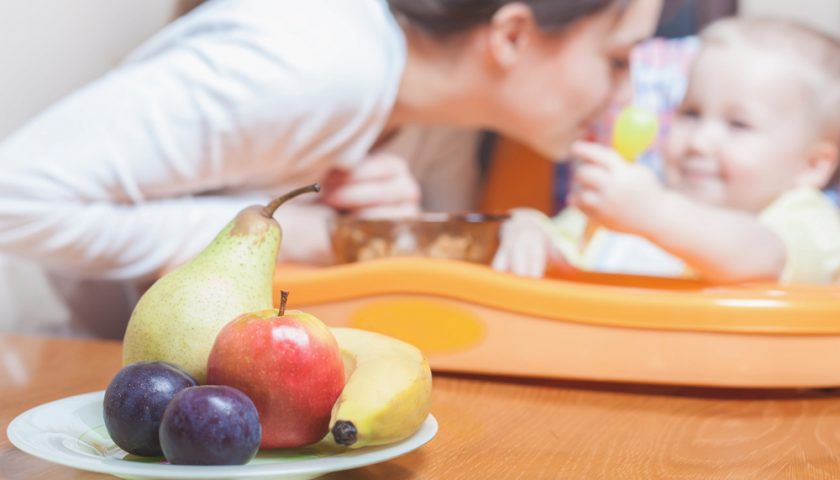You are what you eat (and drink), right? Your baby is what you eat too.
Nutrition is a priority from the time you decide to get pregnant through your pregnancy and breastfeeding.
Breast milk is extremely nutrient-dense. In fact, it offers the majority of the nutrients required for your baby’s first six months of life.
While your body controls the composition of breast milk, what you consume impacts on the contents of breast milk.
No foods are off-limits in general. Women should instead eat a well-balanced, diversified diet. Even yet, there are several foods and beverages you should avoid when breastfeeding. Let’s get to know which foods you should avoid while breastfeeding.
Table of Contents
Foods to Avoid During Breastfeeding
Some babies feel fussy and gassy after you eat some food. If you notice such a pattern, then it is best to avoid that food for a while. So here is a list of what not to eat when breastfeeding.
Chocolate
Chocolate contains theobromine, which has a comparable effect to coffee when consumed.
Even though people enjoy chocolate, they should limit their intake when breastfeeding. If you see that your child is becoming increasingly irritable as a result of his or her chocolate eating, it is best to avoid it. Only by studying your baby’s behavior can you determine how much chocolate you can consume.
If the mother eats more than 750 mg of theobromine per day and has sleep problems, the infant may exhibit irritable and erratic behavior.
Caffeine
Caffeine is abundant in coffee, and some of it may find its way into breast milk.
Caffeine is not digested as well by babies as it is by adults. As a result of the extra caffeine in their bodies, they experience sleeplessness, aggravation, and irritability.
Caffeine in excessive doses can diminish iron levels in the milk, resulting in lower hemoglobin levels in the kid.
So the best option is to limit yourself to no more than 2-3 cups of coffee every day.
Small amounts of caffeine are acceptable because there is little to no caffeine detected in the urine of the newborn.
Citrus Fruits
Citrus fruits are a great source of Vitamin C, but their acidic components might irritate a baby’s stomach.
They can’t deal with these acid components since their gastrointestinal tract is young, resulting in fussiness, diaper rashes, spitting up, and other issues.
However, you do not have to eliminate citrus fruits entirely from your diet. It’s acceptable to have one grapefruit or orange per day.
If you decide to eliminate them entirely, you should replace them with vitamin C-rich foods such as pineapples, papayas, and mangoes.
Broccoli
You shouldn’t be surprised if your infant has gassy problems the next day if you had broccoli for dinner the day before.
Other gassy foods to avoid when breastfeeding are onions, cabbage, cauliflower, and cucumber.
Alcohol
According to the top reviewed Gynecologist in Lahore, Dr. Khola Zeeshan “Alcohol travels from the mother to the infant through breast milk, affecting his brain development.”
You should abstain from alcohol for at least two years. After two hours or longer of alcohol consumption, the mother might breastfeed her infant to reduce the amount of alcohol in her milk.
When the levels are higher than that, the milk-letdown response and milk release may be compromised. If you want to drink something, you should wait two hours before breastfeeding your infant.
High-Mercury Fish
If you eat a lot of fish or other foods high in mercury, it will show up in your breast milk.
Breast milk containing high levels of mercury may have an impact on your baby’s neurological development.
You should eat seafood, including canned tuna, in moderation and no more than twice a week. It’s advisable to stay away from any seafood that has a lot of mercury in it.
Peanuts
Avoid peanuts until your infant is weaned, especially if your family has a history of peanut allergies.
Allergenic proteins from peanuts may transfer into breast milk and eventually reach the baby. Wheezing, hives, or rashes may occur in the baby.
Even if you only eat a few, allergens can transfer into milk in as little as 1-6 hours.
Garlic
Garlic has the ability to alter the fragrance of breast milk. Some babies despise it, but others enjoy it.
If your infant is uncomfortable when nursing, the cause could be garlic.
When babies are exposed to the strong scent of garlic, they may fuss or grimace at the breast.
Dairy Products
Cow milk intolerance may exist in some newborns. The allergens that have entered the breast milk irritate the baby when the mother drinks cow milk or consumes dairy products.
If your infant develops symptoms such as colic or vomiting after eating dairy products, you should cease eating them for a period.
Other signs and symptoms include eczema, skin problems, and sleep disturbances.
Children who are lactose intolerant also have a soy allergy. Organic meat, high-fat dairy, and poultry are preferable since they are free of chemicals, growth hormones, and pesticides.
Spices
Can you eat spicy food while breastfeeding?
Well, the answer is, it depends on your baby. Spicy foods irritate some babies, while they don’t bother others.
Only a smidgeon of pepper is needed to cause harm to a few newborns. These babies are going to be fussy for a long time.
If you discover your infant is uncomfortable with the amount of spices in your food, it’s better to reduce the amount.
Corn
Corn allergy is a typical occurrence in newborns and toddlers. In babies, this could result in rashes and discomfort.
If your baby has allergic reactions to maize, eliminate it from your diet.
Wheat
Gluten sensitivity is another prevalent food issue. This causes a sensitive stomach, bloody feces, and irritability.
This allergy, like all others, can be avoided by eliminating wheat from your diet. Many mothers eliminate the majority of the meals that cause issues before reintroducing them one at a time.
Eggs and Shellfish
If your family has a history of allergies, your baby’s chances of developing allergies are likely to be higher.
If someone in your immediate family is allergic to eggs or shellfish, it’s advisable to avoid these foods while breastfeeding.
Egg allergy, particularly to egg whites, is rather prevalent.
Sushi
If you are a fan of sushi, you may be wondering ‘can I eat sushi while breastfeeding’?
Sushi is safe if it does not contain mercury-rich fish. It is risk-free because listeria germs found in undercooked meals are not easily passed through breast milk.
If you’re breastfeeding and want to eat sushi with low-mercury fish, bear in mind that you shouldn’t eat more than three servings per week.
Salmon, tilapia, flounder, pollock, trout, and catfish are mercury-free fish.
How to Know If Your Baby is Having Problems with a Certain Food?
Your baby’s body will communicate with you about what works and what doesn’t from your diet. Some of the symptoms to watch for are:
- Gas
- Colic
- Diarrhea
- Bloody stool
- Rash
- Excessive spit up or vomiting
- Trouble sleeping
Good Foods to Eat While Breastfeeding
To assist stimulate your milk production, focus on making nutritious choices.
Choose protein-rich foods including lean meat, eggs, dairy, beans, lentils, and mercury-free seafood. Choose a wide range of whole grains, fruits, and veggies.

The flavor of your breast milk will change if you eat a range of foods while breastfeeding. This will introduce your kid to a variety of tastes, which may help him or her take solid foods more easily in the future.
Do You Need Extra Calories While Breastfeeding?
Yes, you may need to consume a bit more, around an extra 330 to 400 calories per day, to provide you with the energy and nutrition you need to make milk.
Choose nutrient-dense foods like a slice of whole-grain bread with a tablespoon (about 16 grams) of peanut butter, a medium banana or apple, and 8 ounces (about 227 grams) of yogurt to acquire these extra calories.
Choose Foods Rich in Iron, Calcium and Protein
Lentils, fortified cereals, leafy green vegetables, peas, and dried fruit, such as raisins, are all good sources of iron. Eat iron-rich foods with vitamin C-rich foods, such as citrus fruits, to help your body absorb iron.
Consider plant-based protein sources such as soy products and meat alternatives, legumes, lentils, nuts, seeds, and whole grains for protein. Dairy and eggs are also alternatives.
Dairy products and dark green vegetables are good sources of calcium. Calcium-enriched and -fortified items, such as juices, cereals, soy milk, soy yogurt, and tofu, are other options.
Fluids to Drink While Breastfeeding
When you’re thirsty, drink more, and if your pee is dark yellow, drink even more. When you breastfeed, you may want to consume a glass of water or another beverage.
Juices and sugary drinks, on the other hand, should be avoided. Too much sugar can cause weight gain or undermine your pregnant weight loss efforts.
Bottom Line!
Your infant may be allergic to only a few of these foods, or he may not be allergic to any of them at all. It may not be necessary to quit eating all of the items you should avoid while breastfeeding now that you know what to avoid.
However, before eliminating any foods from your diet, consult a well-known gynecologist to make an informed decision about your food choices. Book an appointment via Healthwire.pk or call at (042) 32500989.
